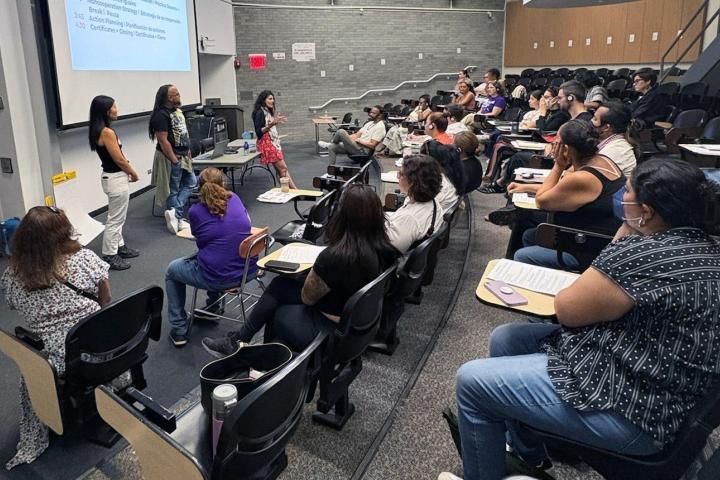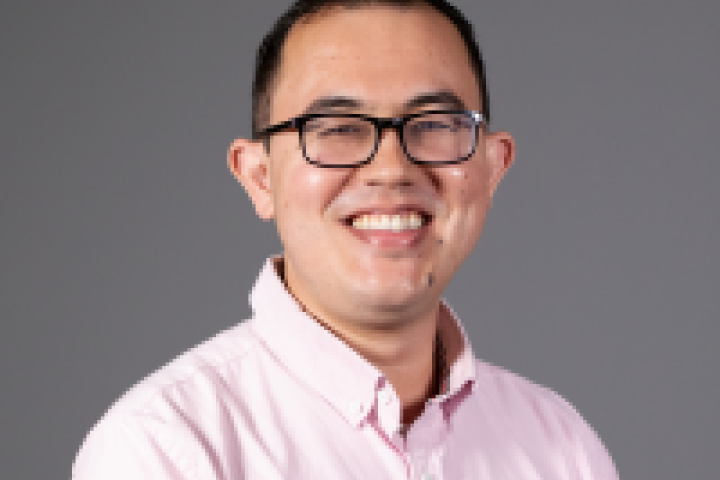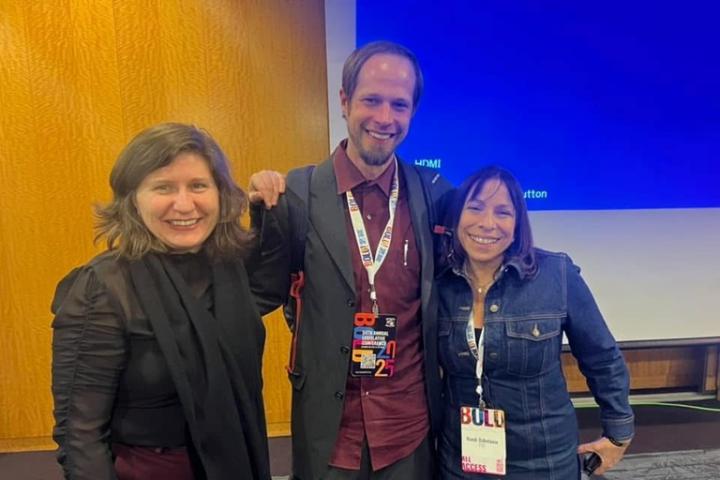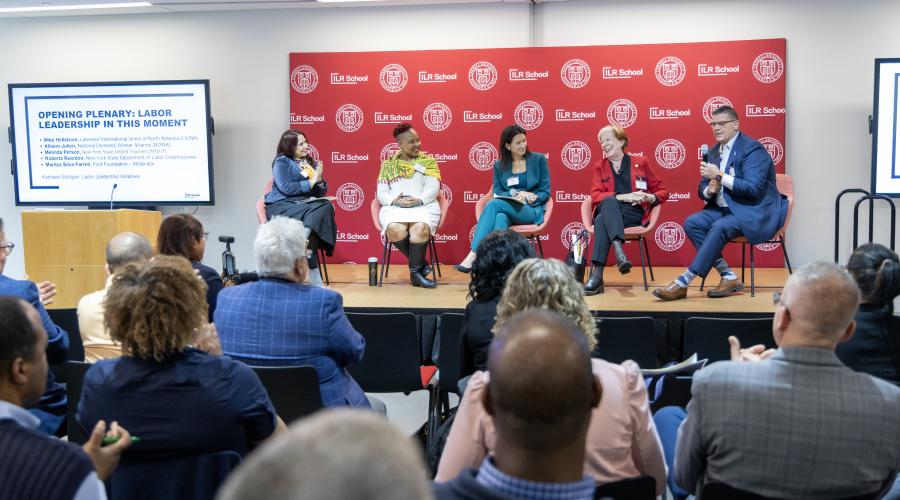
ILR Union Leadership Institute Holds Reunion in New York City
Despite late May rain, 85 alumni of Cornell ILR’s Union Leadership Institute gathered in New York City to reunite over 20 years of program cohorts.
The reunion featured discussions on labor leadership and the challenges faced today by the labor movement. Speakers highlighted the need for solidarity, political consciousness and community building among labor leaders. The event emphasized the importance of partnerships, particularly between Cornell University and the New York State AFL-CIO, in fostering leadership and resilience within the labor movement.
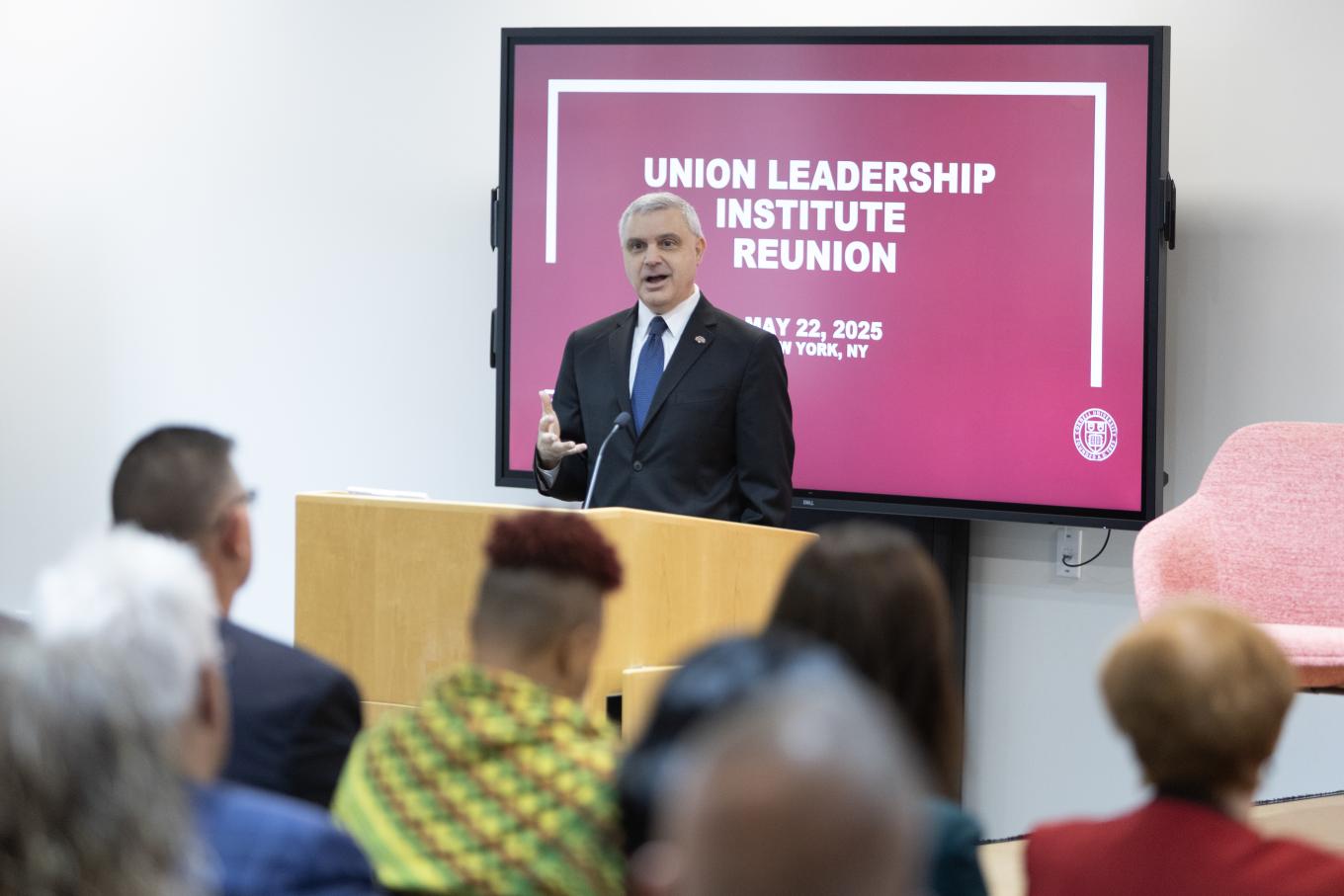
“We're here today because people years ago had figured we could all join together and do great things,” said Mario Cilento, president of NYS AFL-CIO. “And that's what this program is supposed to be about.”
Since the first cohort in 2001, the New York State AFL-CIO/Cornell Union Leadership Institute has shepherded hundreds of labor and worker-justice leaders. A survey found that 89% of ULI graduates agreed that since participating in the program, they’ve been able to build leadership capacities within their organizations to form a stronger team.
“[This program] allows us to have stability in our movement, and that is more important now than ever,” said Cilento. “When you have the next generation of leaders ready to go, you don't lose any ground; you're able to pick up and go. And each generation has to be able to build upon the success of its predecessors. That is vital.”
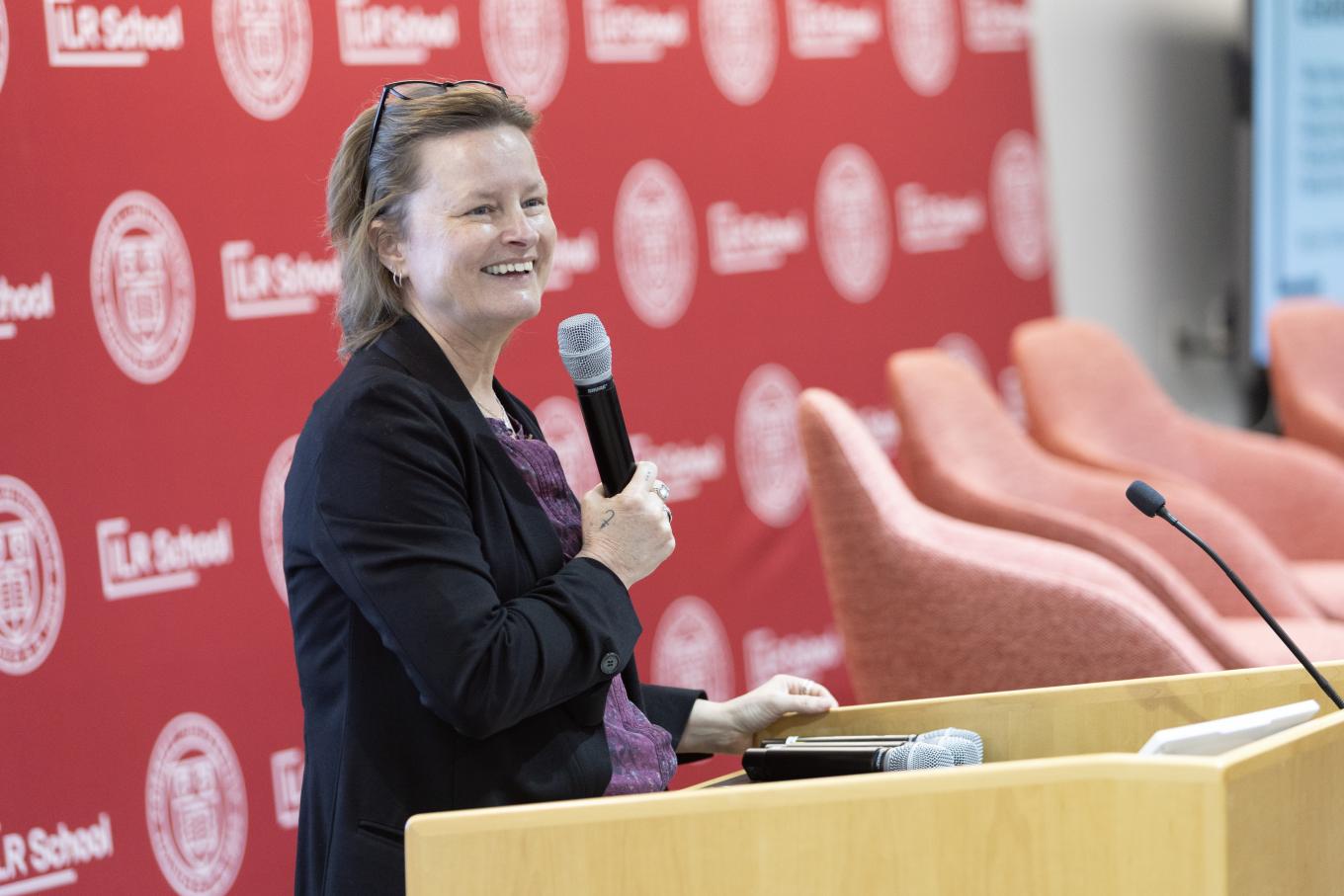
“One of the hardest things about being a leader is that you don’t get to choose the conditions you lead through,” said Kathleen Mulligan, director of ILR’s Labor Leadership Initiative (LLI).
It’s a poignant time to reunite the ULI cohorts. “We find ourselves in a pivotal juncture when it comes to the strength of labor in the face of unprecedented pressures on unions and working people,” sums up Ariel Avgar, Cornell ILR’s senior associate dean for Outreach and Sponsored Research. “A number of critical questions emerge: Can we seize on the increased demand for unionization and collective action that we've seen over the last number of years? Can we innovate and meet the evolving expectations of workers and union members? And can we make use of past successes and mistakes to improve the ways in which we do our work? Looking out on this room of union leaders and past participants in ULI, there's no doubt in my mind that we are up for that challenge.”
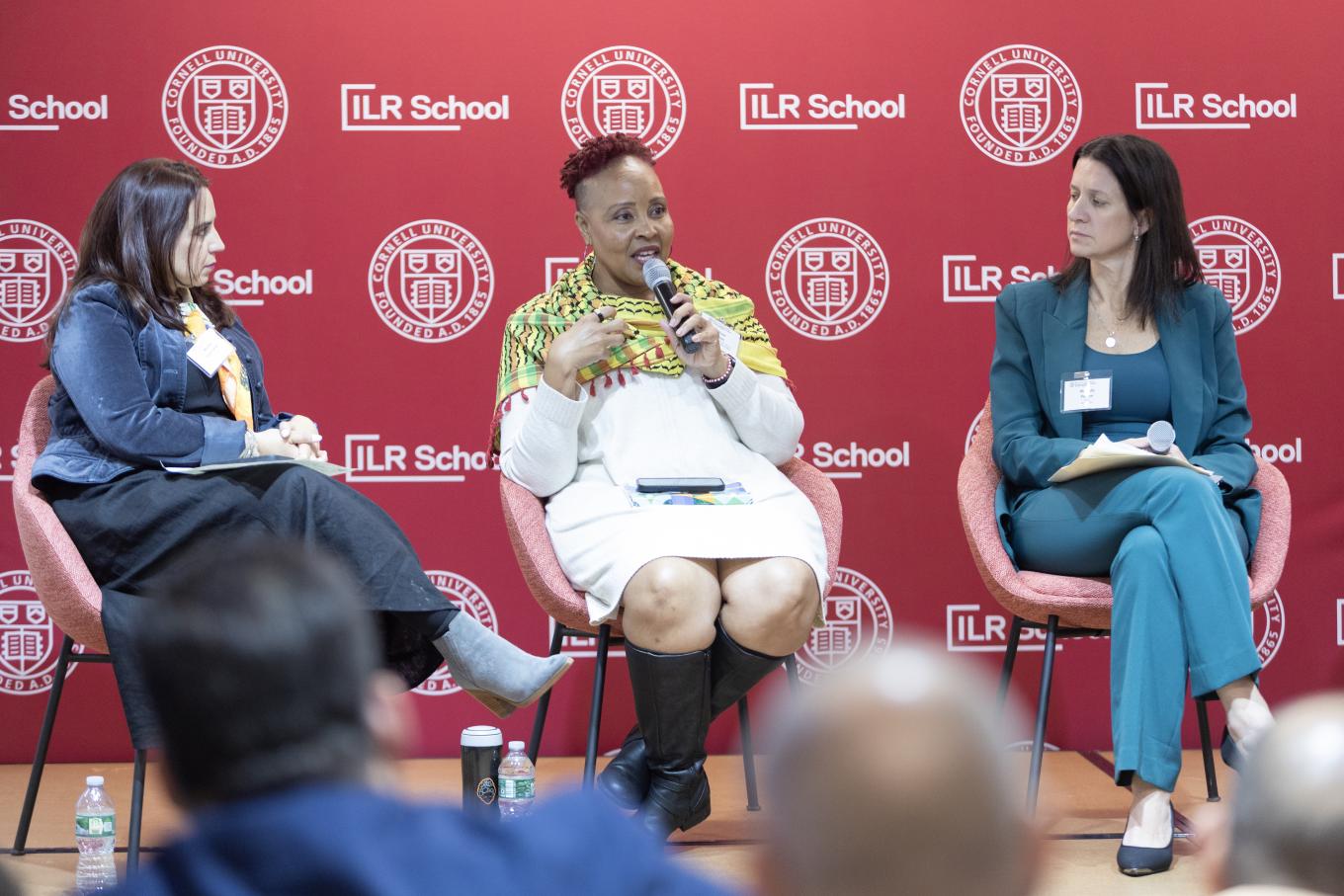
“We are who we’ve been waiting for,” Allison Julien of the National Domestic Worker Alliance gestured to the crowd during the opening plenary, ‘Labor Leadership in this Moment.’ Joining Julien on stage: Melinda Person, president of the New York State United Teachers; Roberta Reardon, commissioner of the New York State Department of Labor; Maritza Silva-Farrell, program officer at the Ford Foundation; Mike Hellstrom, vice president and eastern regional manager of the Laborers’ International Union of North America.
“When they are grabbing people off the street in this country, and we're just sitting silently by and going, ‘well, that's not really me.’ No, that is you! That is you,” said Hellstrom. “We have to figure out what our collective action looks like. And you know, having people from the domestic workers organization here, it's these connections in my mind that is really going to give us the juice and the gas in the tank to be able to move forward. Look, I live by a creed that if they want it, they should fucking fight me for it. And so I'm going to say I'm ready for the fight.”
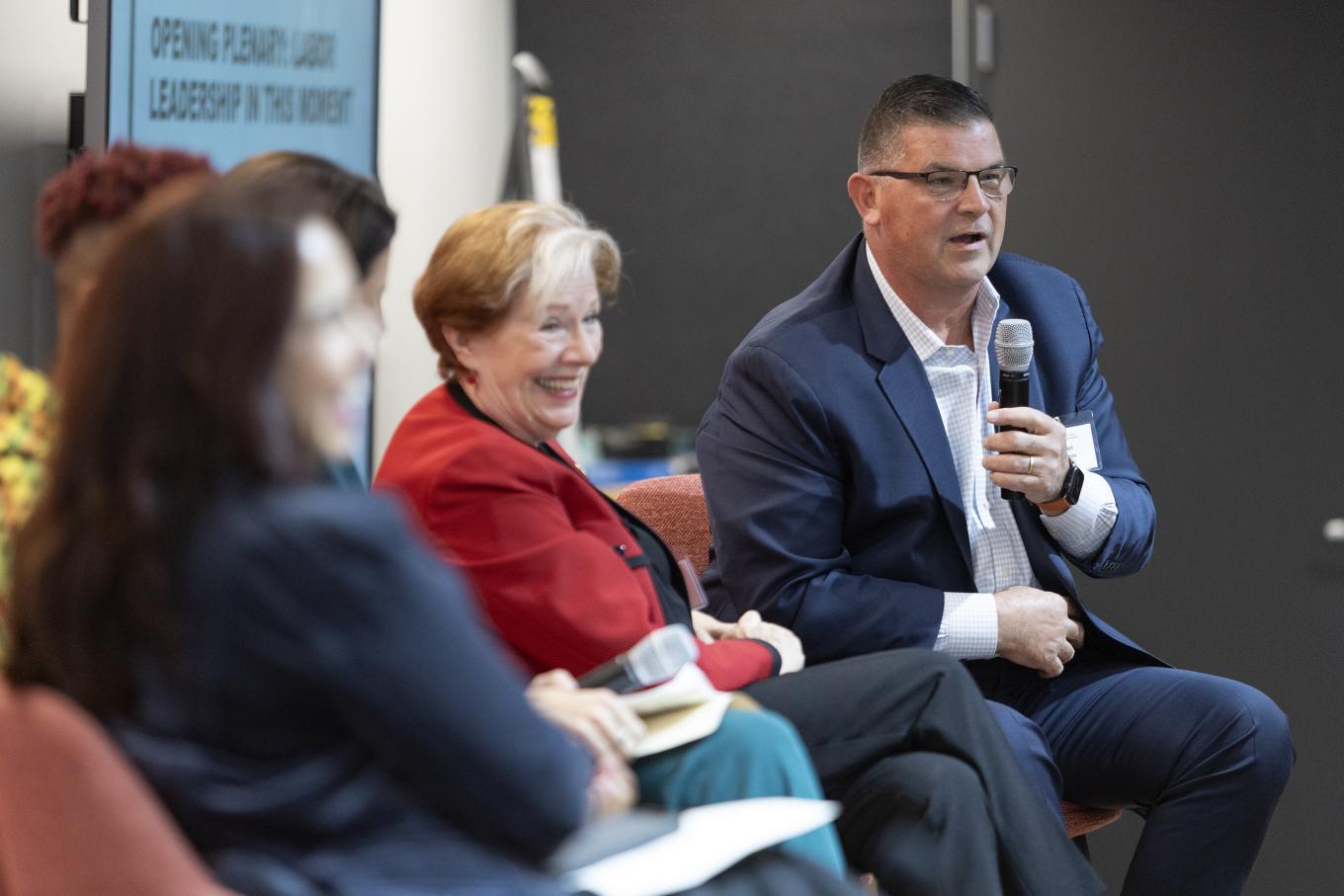
“Most of us would not have chosen to be leading through these conditions–but I think Mike Hellstrom might be the only person I would exempt from this statement,” joked Mulligan. “My hope is that through the work that we do across all of our labor leadership programs, is that we would support building a movement that is big enough, powerful enough, nimble and skilled enough to take on those challenges.”
For over 20 years, ULI has prepared the next generation of labor leaders for the fight, sort of a labor dojo. In that time, its graduates have faced formidable threats, but perhaps none as daunting as today’s. Through ULI’s deep web of mentors, educators, fierce friends and fighters, the program continues its mission: to prepare labor, regardless of the conditions, to lead.

